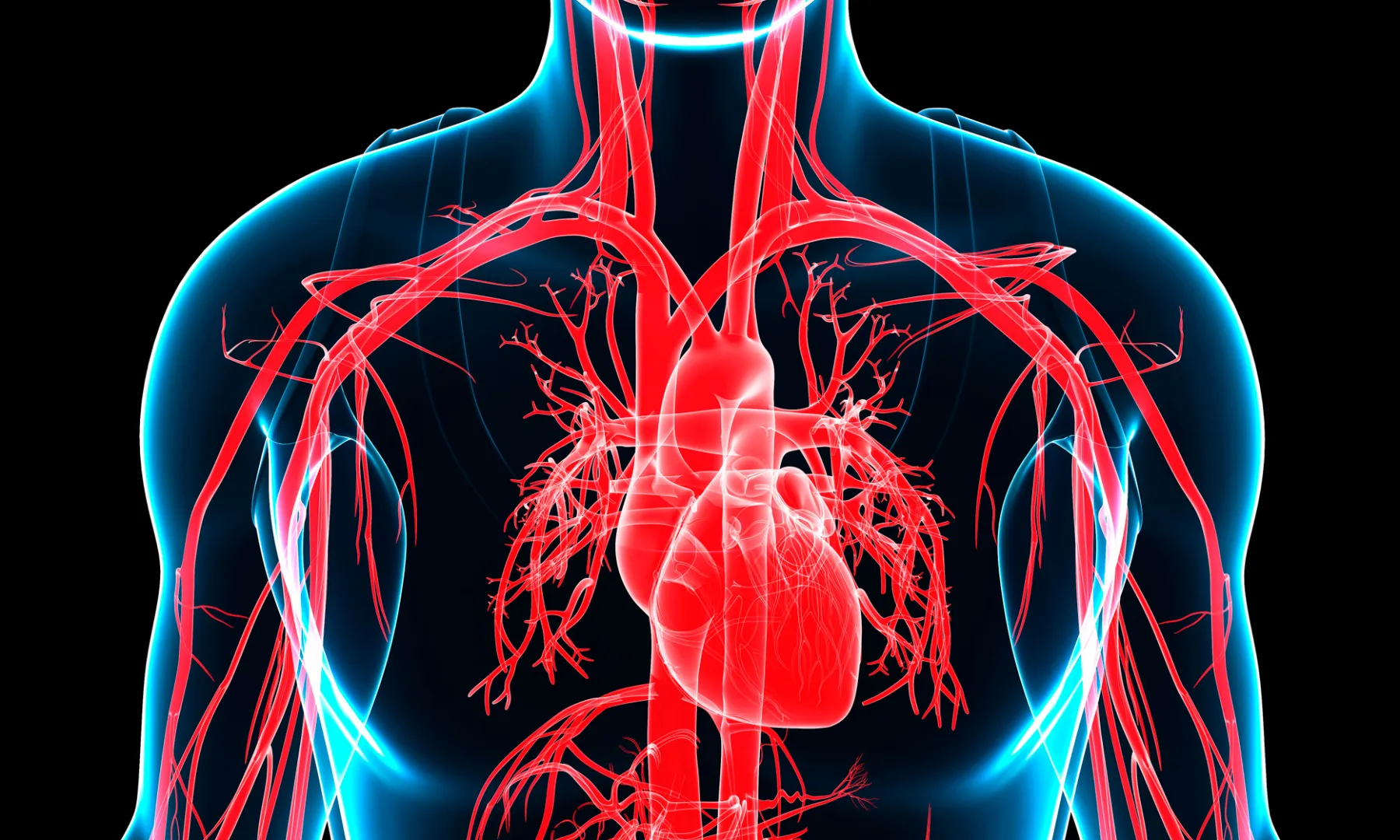
Nutrigenomics and cardiovascular health are at the forefront of a significant shift in preventive and personalized medicine. Imagine if the food you recommend to a patient could align perfectly with their genetic profile to protect and strengthen their heart. By examining nutrient-gene interactions, practitioners can move beyond generalized dietary advice to precision nutrition strategies that directly target cardiovascular risk factors.
With cardiovascular disease as one of the leading causes of death globally, the ability to tailor dietary interventions based on genetics could be a clinical game-changer. In this guide, we’ll explore how the integration of nutrigenomics and cardiovascular health is redefining preventive care, enhancing treatment plans, and opening the door to the next era of precision cardiology.
Key Takeaways
Nutrigenomics links genetics with nutrition, revealing how your DNA influences nutrient metabolism and cardiovascular health, paving the way for personalized heart care.
Cardiovascular risks can be managed with DNA-informed diets, such as targeting cholesterol metabolism, inflammation, and blood pressure through specific gene-nutrient interactions.
Personalized nutrition surpasses generic advice, offering tailored dietary strategies like reducing saturated fats for APOE ε4 carriers or promoting folate-rich foods for MTHFR variants.
Emerging research is reshaping heart health strategies, with advancements in microbiome-genetic interactions, epigenetics, and precision nutrition tools enhancing preventive care.
Integrating genetic insights into clinical practice empowers practitioners to provide actionable, science-backed dietary recommendations, such as supplement protocols.
Ethical considerations and continuous learning are crucial, ensuring patient trust, privacy, and up-to-date practices in the rapidly advancing field of nutrigenomics.
Table of Contents
Understanding the Intersection of Nutrigenomics and Heart Health
Nutrigenomics examines how your genes affect your body’s response to foods, particularly in maintaining heart health. It could explain why some thrive on high-carb diets while others don’t. With heart disease being the top cause of death in the U.S., understanding this connection can be a valuable tool for prevention.
Genes—and Your Heart’s Personal Blueprint
Your DNA acts as your body’s instruction manual, with specific genes influencing cholesterol metabolism, inflammation control, and blood pressure—key factors in heart health. Variants in genes like FTO or APOE determine how your body stores fat or handles high-fat diets, explaining why some people can eat rich foods without issue, while others experience a spike in cholesterol.
Why This Matters for Practitioners
For healthcare providers like you, nutrigenomics delivers tools to move beyond trial-and-error approaches. Instead of repeating advice like “cut salt” or “eat more vegetables” (which you’ve probably said at least a thousand times), you can jump into targeted strategies. You’ll identify whether their DNA predisposes them to risks like hypertension or if specific nutrients could optimize their cardiovascular health. Think of it as adding precision tools to your toolbox instead of just guessing what works.
The Foundations of Nutrigenomics in Cardiovascular Care
Nutrigenomics explores how your DNA interacts with the foods you eat, revealing how nutrition impacts your heart health. It connects genetics and diet to guide better heart-health strategies.
Core Cardiovascular Pathways Affected by Nutrition–Gene Interactions
Ever wondered why some people can eat fried food with minimal impact, while others see their cholesterol spike faster than you can say “cheeseburger”? That difference might lie in genes like APOE, LDLR, and PCSK9, which regulate lipid metabolism. These genes act as gatekeepers, determining how fats and cholesterol are processed in your body. For instance, variations in the APOE gene can influence whether a high-fat diet puts you at risk for conditions like atherosclerosis.
Then there’s inflammation. Genes like IL6 and CRP play a role in ramping up or dampening inflammation, a critical factor in cardiovascular conditions. For instance, high levels of C-reactive protein (CRP) are often a marker for heart problems. Imagine being able to combat inflammation using foods tailored to someone’s genetic predisposition—now that’s next-level care.
Blood pressure isn’t just about salt intake. It’s a mix of hormones and enzymes, many of which are influenced by genes like AGT, ACE, and NOS3. These genes affect how blood vessels respond to stress, contributing to hypertension in people with genetic predispositions.
Finally, let’s talk about oxidative stress—think of it as rusting from the inside out. Genes like SOD2 and GPX1 are involved in your body’s ability to fight this “rust” using antioxidants. Certain foods packed with vitamin C or selenium can activate these genes, helping reduce cellular damage that might otherwise harm the heart’s endothelial lining. It’s all connected.
When it comes to putting all this science into practice, remember: the proper nutrition creates harmony in these pathways while bad habits turn up the stress volume. Your work can help bridge this divide by leveraging cutting-edge tools to make “eat better for your heart“ more personalized than ever.

The Practitioner’s Edge: Clinical Payoffs of Nutrigenomics in Cardiovascular Care
Managing heart health now involves understanding the genetic reasons behind conditions. Clinical applications for nutrigenomics use DNA insights to explain factors like cholesterol and inflammation, offering personalized and precise dietary advice. It’s a breakthrough for preventive care.
Translating Genetic Insights into Targeted Heart Disease Prevention and Management
Understanding genetic variants helps identify risks for heart issues like atherosclerosis, hypertension, and arrhythmias. For instance, people with APOE gene variants may process saturated fats poorly, leading to high LDL cholesterol. This knowledge allows for personalized advice instead of generic plans, potentially preventing major heart procedures.
Diet can also work effectively when matched to an individual’s genetics. Folate helps manage homocysteine levels for those with MTHFR variants, while omega-3s improve endothelial function in people with NOS3 mutations. Incorporating nutrigenomic testing methods into care provides tools to lower risks beyond standard nutrition plans.
Evidence Highlights: Key Studies Shaping Nutrigenomics in Cardiology
The science is catching up in exciting ways. Here’s a snapshot:
Gene Variant | Nutrient Interaction | Cardiovascular Outcome | Key Study Reference |
|---|---|---|---|
APOE ε4 | Saturated fat | Elevated LDL-C | |
MTHFR C677T | Folate intake | Reduced homocysteine levels | |
NOS3 G894T | Omega-3 fatty acids | Enhanced endothelial function |
Let’s set an example: a female in her 30s. She’s leaning into omega-3 supplements because someone told her they’re good for her heart. But without digging into her DNA, how do you know she’ll even see a benefit? She might have a NOS3 variant that makes omega-3s extra effective at boosting her vascular health, or she might need a completely different approach. Research like this isn’t about throwing medical jargon at patients—it’s about making their diets work smarter, not harder.
By weaving nutrigenomics into your practice, you’re harnessing the latest in heart-health science to improve outcomes genuinely. Isn’t that worth diving into?
From Lab to Clinic: Implementing Nutrigenomics in Cardiovascular Practice
Nutrigenomics simplifies personalized healthcare by using genetic insights to improve cardiovascular health, tailoring care to each patient’s unique genetic profile.
Navigating Ethical, Legal, and Practical Realities of Genetic-Based Nutrition Plans
Nutrigenomics in cardiovascular health mixes innovation with responsibility. Ethical considerations in nutrigenomics involve gaining informed consent. Patients must understand how their genetic data will be used and protected.
Explain their DNA results as a guide to create personalized heart-healthy diets, while emphasizing that choices and outcomes remain in their control. Protecting genetic data is crucial, as it holds personal identity. Secure systems must be in place to prevent risks.
Finally, remind patients that genetics are not fixed destinies. Lifestyle and diet changes can influence genetic predispositions. For example, those with the APOE ε4 variant can reduce saturated fats and focus on heart-healthy nutrients to improve their health outcomes.
Tools and Technologies to Support Nutrigenomic Decision-Making in Heart Health
Clinical decision tools and advanced software are making this possible. AI-driven platforms analyze genetic tests to offer personalized dietary suggestions, like specific omega-3s or vitamin B options based on DNA. Wearable tech adds to this, tracking biomarkers like cholesterol or blood pressure in real time. Spikes in markers, such as CRP, allow for quick diet adjustments, like adding anti-inflammatory foods. These tools simplify care, enabling highly personalized nutrition plans. While setup takes effort, the rewards include better results, happier patients, and greater confidence. Isn’t it worth it?

Frontiers in Nutrigenomics for Cardiovascular Specialists
As a healthcare practitioner diving deeper into nutrigenomics and cardiovascular health, you’ve likely pondered how emerging science can translate into actionable care. Let’s explore some cutting-edge areas and often-overlooked aspects that could reshape your clinical practice.
Breakthrough Research Trends Redefining Genetic Nutrition for Heart Health
Emerging studies suggest that the interaction between your genes, diet, and gut microbiota could hold the key to managing cardiovascular risk. For example, certain gut microbes can mediate nutrient absorption, influencing inflammation and cholesterol levels. You might soon be recommending probiotic-rich foods paired with personalized diets based on both gene and microbiome profiles.
Then there’s the exciting world of epigenetics, where bioactive compounds like polyphenols from berries and green tea can switch your genes on and off. They can reduce oxidative stress and inflammation, directly supporting cardiovascular resilience.
And let’s talk gene editing—it’s a concept that sounds straight out of science fiction, but could one day revolutionize assistance for lipid disorders like familial hypercholesterolemia. CRISPR technology holds the potential to modify genes, giving patients a fresh start at managing conditions previously determined by their DNA. While it’s not clinical practice-ready just yet, it’s worth keeping an eye on as research progresses.
Overlooked but Impactful: Under-Discussed Genetic Factors in Cardiac Nutrition
Here’s something rarely talked about: how your patient’s genes might affect the way they respond to medications. For instance, variations in the SLCO1B1 gene can dictate how patients metabolize statins—you know, the go-to for lowering cholesterol. For someone with a challenging variant, statins could lead to muscle pain or reduced efficacy. Knowing this, you could use nutrigenomics data to adjust their dietary recommendations for better outcomes.
But it’s not all about genes and science—it’s also about culture. Have you noticed how dietary patterns tied to cultural heritage impact cardiovascular outcomes? Foods that are staples in one community, like olive oil-rich Mediterranean diets, may align better with the genetic profiles of those populations. It’s like a culinary-genetic symphony—when the foods match the genes, the body thrives. Yet this relationship can make generic heart-health advice a frustrating mismatch for culturally diverse patients. Incorporating cultural dietary habits into genetic discussions could make your care plans not just scientific but also deeply personal and effective.
By diving into these advanced topics, you’ll elevate your practice, taking it from good to groundbreaking. Adjust your toolkit, and maybe those “aha!” moments with patients will come faster than you think.
Practitioner Action Plan
If you’re a healthcare provider, integrating nutrigenomics into your practice could open doors to more precise and effective heart health strategies. Start by familiarizing yourself with reliable genetic testing tools and staying updated on research in this rapidly evolving field.
Educate your patients about the potential and limitations of genetic insights, helping them set realistic expectations. Use genetic data as a guide, not a standalone solution, and always consider environmental factors and lifestyle habits in your recommendations.
By adapting a personalized approach, you can empower your patients to make informed dietary choices that align with their unique genetic profiles, paving the way for better cardiovascular outcomes.
For practitioners ready to take this expertise to the next level, the Integrative Genomics Specialist Program offers the comprehensive training needed to interpret and apply genetic data in cardiovascular care confidently. This program equips you with the skills to decode genetic markers, understand nutrient–gene interactions, and design precision nutrition strategies that address each patient’s unique cardiovascular risks. With a curriculum covering core genomics, inflammation, methylation, gut health, pharmacogenetics, and more, you’ll be positioned at the forefront of personalized heart health.
Turn cutting-edge science into real-world impact—enroll in the Integrative Genomics Specialist Program and bring the future of cardiovascular prevention into your practice today.
Frequently Asked Questions
What is nutrigenomics and how does it relate to cardiovascular health?
Nutrigenomics is the study of how your genes interact with the nutrients you consume, influencing health outcomes like blood pressure, cholesterol, and inflammation. In cardiovascular health, nutrigenomics helps identify genetic factors that affect heart disease risk, enabling personalized nutrition plans to improve heart function and reduce disease progression.
How can nutrigenomics help prevent heart disease?
By analyzing genetic markers linked to cholesterol metabolism, blood vessel health, and inflammatory responses, nutrigenomics can guide dietary changes that target these risk factors. Tailored nutrition may help slow plaque buildup, regulate blood pressure, and lower the risk of heart disease and stroke.
Which genes are most relevant to heart health in nutrigenomics?
Key genes include APOE, LDLR, and PCSK9, which influence cholesterol levels; ACE and AGT, which affect blood pressure regulation; and IL6 and CRP, which control inflammation. Understanding these genes allows healthcare providers to design targeted nutrition strategies for heart protection.
Can personalized nutrition from nutrigenomics lower cholesterol?
Yes. If genetic testing reveals variants affecting lipid metabolism, targeted dietary changes—such as adjusting saturated fat intake or increasing omega-3 fatty acids—can help lower LDL cholesterol and raise HDL cholesterol, supporting better cardiovascular outcomes.
Is nutrigenomics effective for reducing heart attack risk?
Nutrigenomics can identify and help manage genetic predispositions for risk factors like high cholesterol, hypertension, and chronic inflammation. By personalizing diet and lifestyle, it may significantly reduce the likelihood of heart attacks, especially in high-risk individuals.
Does nutrigenomics consider lifestyle and environmental factors?
Absolutely. While genetics provide the blueprint, environmental factors such as exercise, stress, sleep, and cultural dietary habits play a major role in cardiovascular health. Effective nutrigenomic plans combine genetic insights with these lifestyle elements.
Is nutrigenomics appropriate for everyone?
Most individuals can benefit, but the level of impact depends on the availability of accurate genetic data, health history, and personal goals. A qualified healthcare provider can determine if nutrigenomic testing is suitable for you.
How can healthcare practitioners integrate nutrigenomics into their practice?
Practitioners can use genetic testing to design customized nutrition and lifestyle plans, improving cardiovascular outcomes. Training programs, like Elite Gene Labs’ Integrative Genomics Specialist Program, provide the skills needed to apply nutrigenomics effectively in clinical settings
References:
Corella, D., Portolés, O., Arriola, L., Chirlaque, M. D., Barricarte, A., Huerta, J. M., Rodríguez-Cantón, M., Molina-Montes, E., Saiz, C., González, C. A., & Ordovás, J. M. (2023). Saturated fat intake modulates the association between an obesity genetic risk score and body mass index in two US populations. Journal of the Academy of Nutrition and Dietetics, 123(7), 1062–1073. https://alz-journals.onlinelibrary.wiley.com/doi/10.1002/alz.13358
Musunuru, K., & Kathiresan, S. (2019). Genetics of common, complex coronary artery disease. Cell, 177(1), 132–145. https://lipidworld.biomedcentral.com/articles/10.1186/s12944-024-02151-8
Lahoz, C., Schaefer, E. J., Cupples, L. A., Wilson, P. W., Levy, D., Osgood, D., Parpos, S., Pedro-Botet, J., Daly, J. A., & Ordovas, J. M. (2001). Apolipoprotein E genotype and cardiovascular disease in the Framingham Heart Study. Atherosclerosis, 154(3), 529–537. https://pubmed.ncbi.nlm.nih.gov/11257253/
Yiannakouris, N., Trichopoulou, A., Benetou, V., Psaltopoulou, T., Ordovas, J. M., & Trichopoulos, D. (2008). A direct assessment of genetic contribution to the incidence of coronary infarct in the general population Greek EPIC cohort. European Journal of Epidemiology, 23(3), 195–201. https://pmc.ncbi.nlm.nih.gov/articles/PMC8890439/
Wassel, C. L., Pankow, J. S., Peralta, C. A., Choudhry, S., Seldin, M. F., & Arnett, D. K. (2011). Genetic ancestry is associated with subclinical cardiovascular disease in African-Americans: The multi-ethnic study of atherosclerosis (MESA). Atherosclerosis, 220(2), 535–540. https://www.jacc.org/doi/10.1016/j.jacadv.2024.101063
Jeunemaitre, X., Soubrier, F., Kotelevtsev, Y. V., Lifton, R. P., Williams, C. S., Charru, A., Hunt, S. C., Hopkins, P. N., Williams, R. R., Lalouel, J. M., & Corvol, P. (1992). Molecular basis of human hypertension: Role of angiotensinogen. Cell, 71(1), 169–180. https://medlineplus.gov/genetics/gene/agt/
Tang, W. H. W., Bäckhed, F., Landmesser, U., & Hazen, S. L. (2019). Intestinal microbiota in cardiovascular health and disease: JACC state-of-the-art review. Journal of the American College of Cardiology, 73(16), 2089–2105. https://pmc.ncbi.nlm.nih.gov/articles/PMC8983311/

